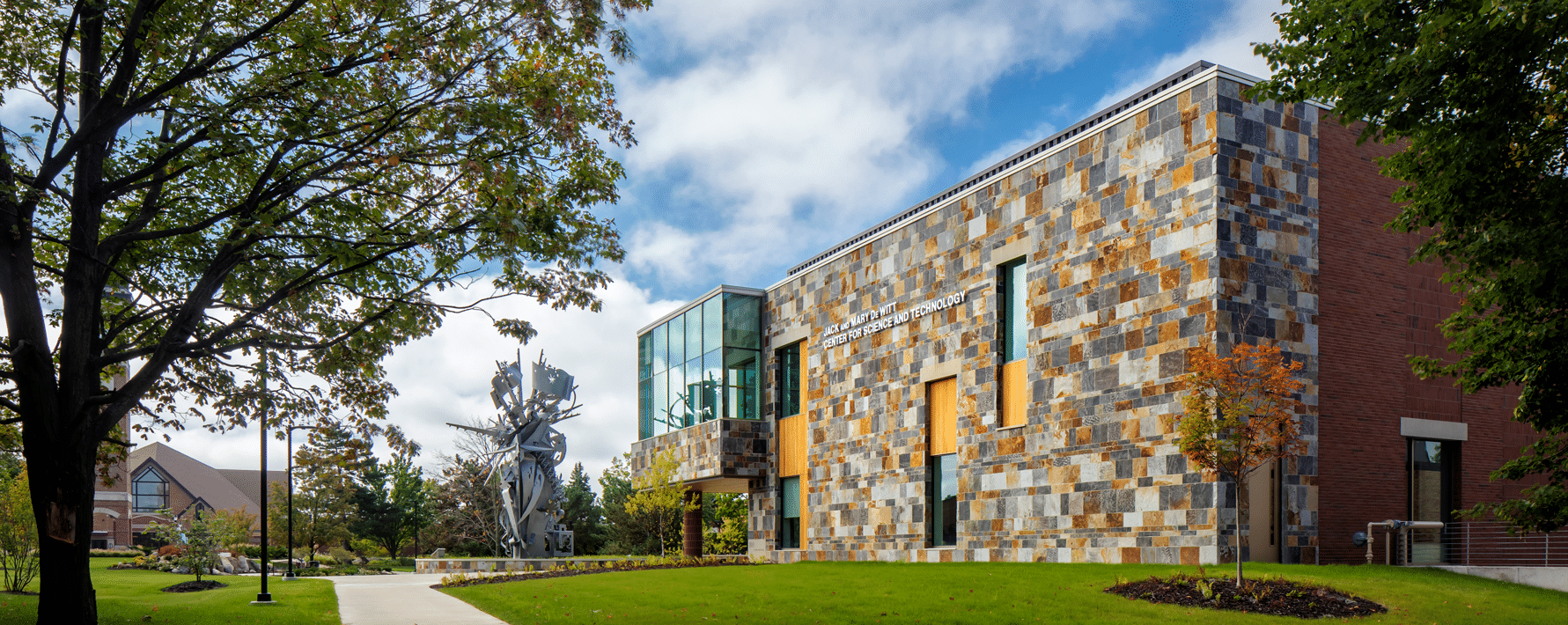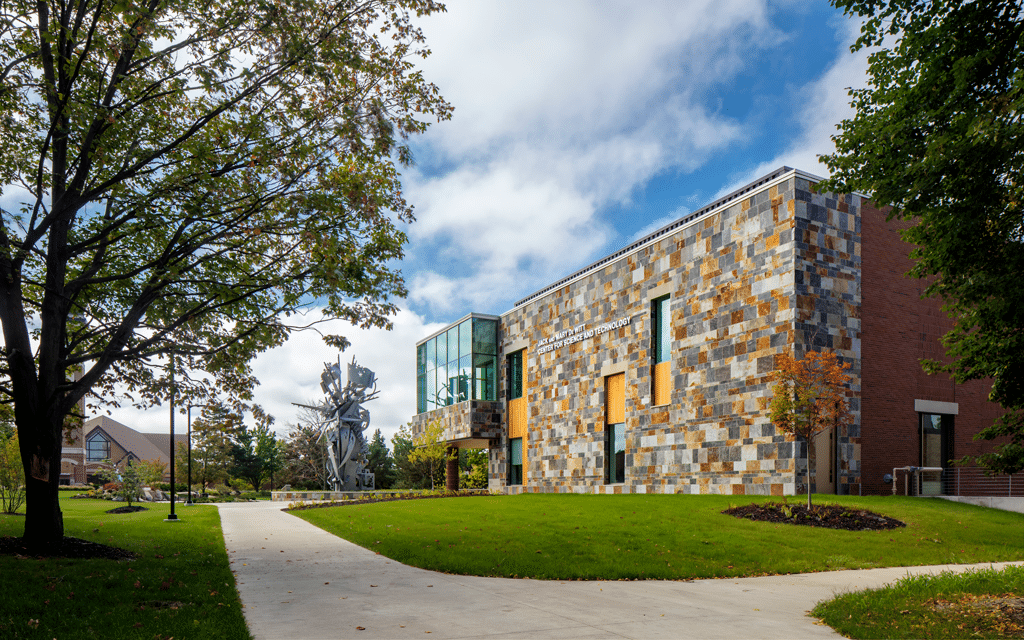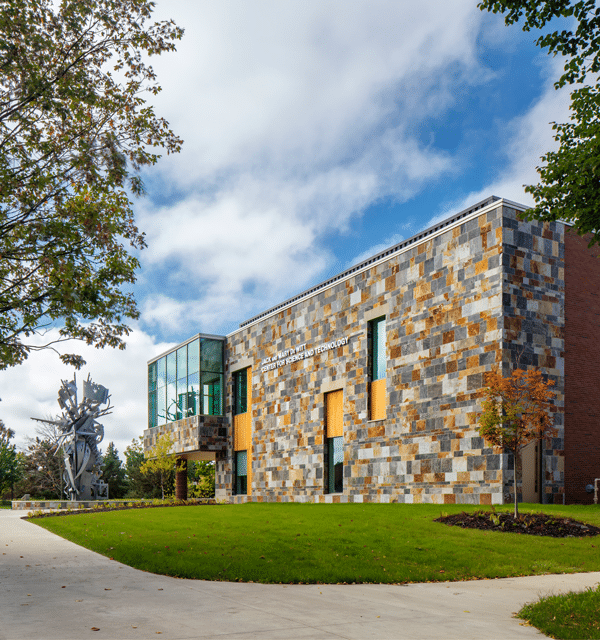Request Information
Loading...
ABET Accreditation Reporting Measures
The Bachelor of Science in Engineering (B.S.E.) program at Cornerstone University is seeking accreditation through ABET. Below are listed the program educational objectives, student outcomes and enrollment data.
Degrees Available
Cornerstone offers a B.S.E. with concentrations in the following:
- B.S.E. with a mechanical engineering concentration.
- B.S.E. with a design and innovation concentration.
- B.S.E. with an environmental engineering concentration.
- B.S.E. with a data science concentration.
- B.S.E. with an engineering management concentration.
- B.S.E. with a biomedical product design concentration.
Program Educational Objectives
Graduates of the engineering program are expected within a few years of graduation to:
- Demonstrate technical competency in their careers.
- Function effectively in an industrial or academic environment.
- Contribute to their professions, societies and communities.
- Live out the virtues of their Christian faith in their vocation.
Student Outcomes
The graduate will know and demonstrate:
- An ability to identify, formulate and solve complex engineering problems by applying principles of engineering, science and mathematics.
- An ability to apply engineering design to produce solutions that meet specified needs with consideration of public health, safety and welfare, as well as global, cultural, social, environmental and economic factors.
- An ability to communicate effectively with a range of audiences.
- An ability to recognize ethical and professional responsibilities in engineering situations and make informed judgments, which must consider the impact of engineering solutions in global, economic, environmental and societal contexts.
- An ability to function effectively on a team whose members together provide leadership, create a collaborative and inclusive environment, establish goals, plan tasks and meet objectives.
- An ability to develop and conduct appropriate experimentation, analyze and interpret data and use engineering judgment to draw conclusions.
- An ability to acquire and apply new knowledge as needed, using appropriate learning strategies.
Bachelor of Science in Engineering Undergraduate Enrollment Data
| Year | Program | Pre-Admit | Secondary Admit | Total |
|---|---|---|---|---|
| 2018-19 | Engineering | 7 | 0 | 7 |
| 2019-20 | Engineering | 15 | 3 | 18 |
| 2020-21 | Engineering | 22 | 5 | 27 |
| 2021-22 | Engineering | 17 | 6 | 23 |
| 2022-23 | Engineering | 18 | 10 | 28 |
| 2023-24 | Engineering | 16 | 7 | 23 |
Pre-admit: Total enrollment of students in foundation level engineering courses, prior to admittance into the engineering program through the secondary admit process.
Secondary admit: Total enrollment of students in upper-level engineering courses, after admittance into the engineering program through the secondary admit process.
Bachelor of Science in Engineering Graduation Data
| Year | Program | Number of Graduates |
|---|---|---|
| 2018-19 | Engineering | 0 |
| 2019-20 | Engineering | 0 |
| 2020-21 | Engineering | 2 |
| 2021-22 | Engineering | 2 |
| 2022-23 | Engineering | 7 |
| 2023-24 | Engineering | 4 |
Graduates: Total number of senior students, who have fulfilled the program requirements for one of the six B.S.E. concentrations, during the specified year.







